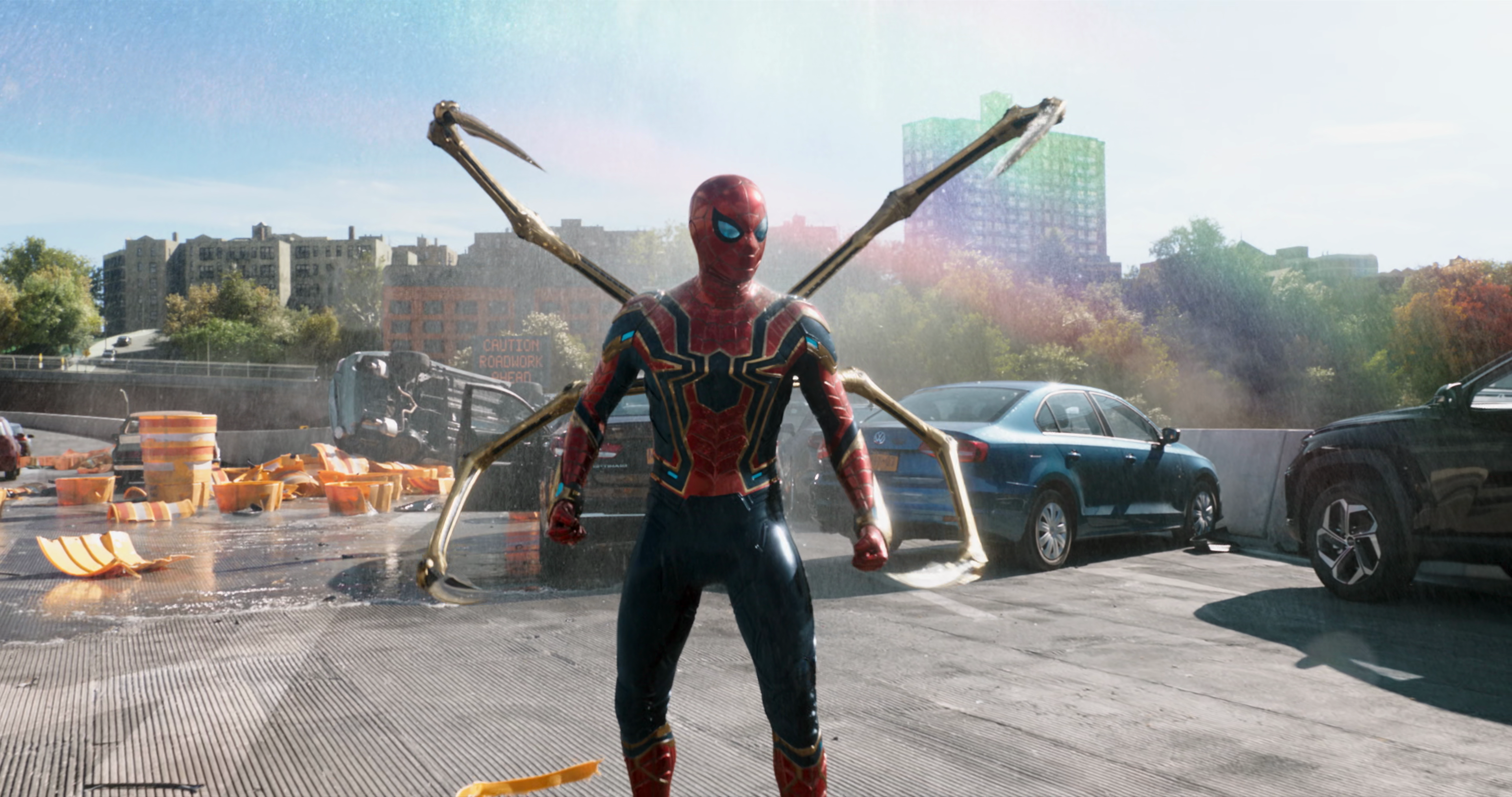While No Way Home is indeed an entertaining film and the hype built up in the past months pays off in a way, it is also in no way the single best Spiderman film ever made, and even when it tries to, it is unable to reach the emotional depth and characterial development of the Raimi trilogy.
At two hours and 28 minutes of lenght, the longest spiderman film is fast paced enough for the lenght to be of no issue. Again, it is a very entertaining film, with several very enjoyable action sequences. Some have commented on its closeness, in terms of style, with the Raimi films, but this cannot be further from the truth: it features a slightly improved style in comparison to the previous films of the trilogy (although Far From Home still remains the better entry), with more attention to cinematography.
A meri, from a thematic standpoint, has to be given to the way No Way Home tackles a very common contemporary topic, that of cancel culture as seen from the standpoint of the celebrity who is being accused, too often with baseless allegations (as is the case with Peter Parker in the film). Too often films on which countless crew members and professionals worked have been halted or poorly distributed due to the accusations suffered by one, as it happens in this film to the people surrounding Peter Parker.
 |
|
Referentialism is what dominates No Way Home, a continuous citation of previous spiderman and MCU films. When employed in cinema, this trait often leads to outstanding results (as it is the case of Tarantino), but it becomes overexploited in the case of No Way Home. The film relies on citations for most of its key moments, without hardly building anything new, or even if something new is introduced, it is a story point that lasts only few seconds before it is dismissed without any serious impact on the plot. Too much, on the other hand, has been seen in previous spiderman films, or in the animated film Spiderman: Into the Spiderverse, also concerned with multiverses.
 |
|
Post-Endgame films belonging to the Marvel Cinematic Universe have mostly seen a quality decrease, when it comes to their plot. Far From Home, the previous entry in the spiderman trilogy, managed to stand out for its coherence and structured story, but sadly, when analysing the plot aspect of No Way Home without taking into consideration the entertainment of action scenes and references, what remains is an idiosyncratic chain of events, in which characters get randomly introduced and incoherent actions occur. The feeling is that No Way Home has bit off more than it can chew, even with its considerable lenght.
 |
|
Another main issue of the storyline is the lack of positive agency of the main character. His actions in the first half of the story mostly have negative effects, and ultimately it is the ensemble of supporting characters (Benedict Cumberbatch’s Doctor Strange, Zendaya’s MJ, Marisa Tomei’s Aunt May etc.) that either nudge him in the right direction or solve themselves the troubles caused by him. He does not save anyone by himself. A protagonist that is unable to have an indipendent agency by definition is not a strong character, and while Peter Parker has proven his agency in Far From Home or even Homecoming, in No Way Home he relies overly on others.
While his non-agency affects negatively the development of the character, the trials he faces lead to a further development and – finally – a new outcome for him. If Peter Parker remained essentially an unsure teenager in both Homecoming and Far From Home (as well as in the first half of No Way Home), the Peter Parker that is seen at the end of the film is an entirely new character closer in its journey to what was the Tobey Maguire version in the Sam Raimi trilogy. The best trait of No Way Home is the new possibilities it thus leaves for the maturation of the MCU spiderman.
 |
|
Peter Parker’s developing maturity is very palpable in Tom Holland’s performance, which truly reaches new heights in the second half of the film, displaying a new range of emotional depth that was mostly absent in the light-hearted previous entries. Another performance worthy of note is that of Willem Dafoe, who returns in the green Goblin costume and reinterprets the character in a fresh, even more intimidating fashion, thanks to his immense mastery of villainous and insane roles.
Looking back at the heritage of spiderman films, No Way Home is the natural outcome of the success of other spiderman films: Into the Spiderverse, the Raimi trilogy, in some ways the much more underrated Webb duology. Considered indipendently of the films it is built on, it hardly adds much to the table that has not been made before. It is nonetheless far from being the worst or among the worst spiderman films (as well as far from being the best).
No doubt, the high expectations and the ridiculously exaggerated hype might have ruined the viewing experience for many, by building too high demands and overly analyzing every tidbit of leak or trailer looking for a great revelation.
Nonetheless, No Way Home is most definitely to become the greatest commercial success since march 2020, and is the film that is going to save the theatrical experience.







Comments
Post a Comment